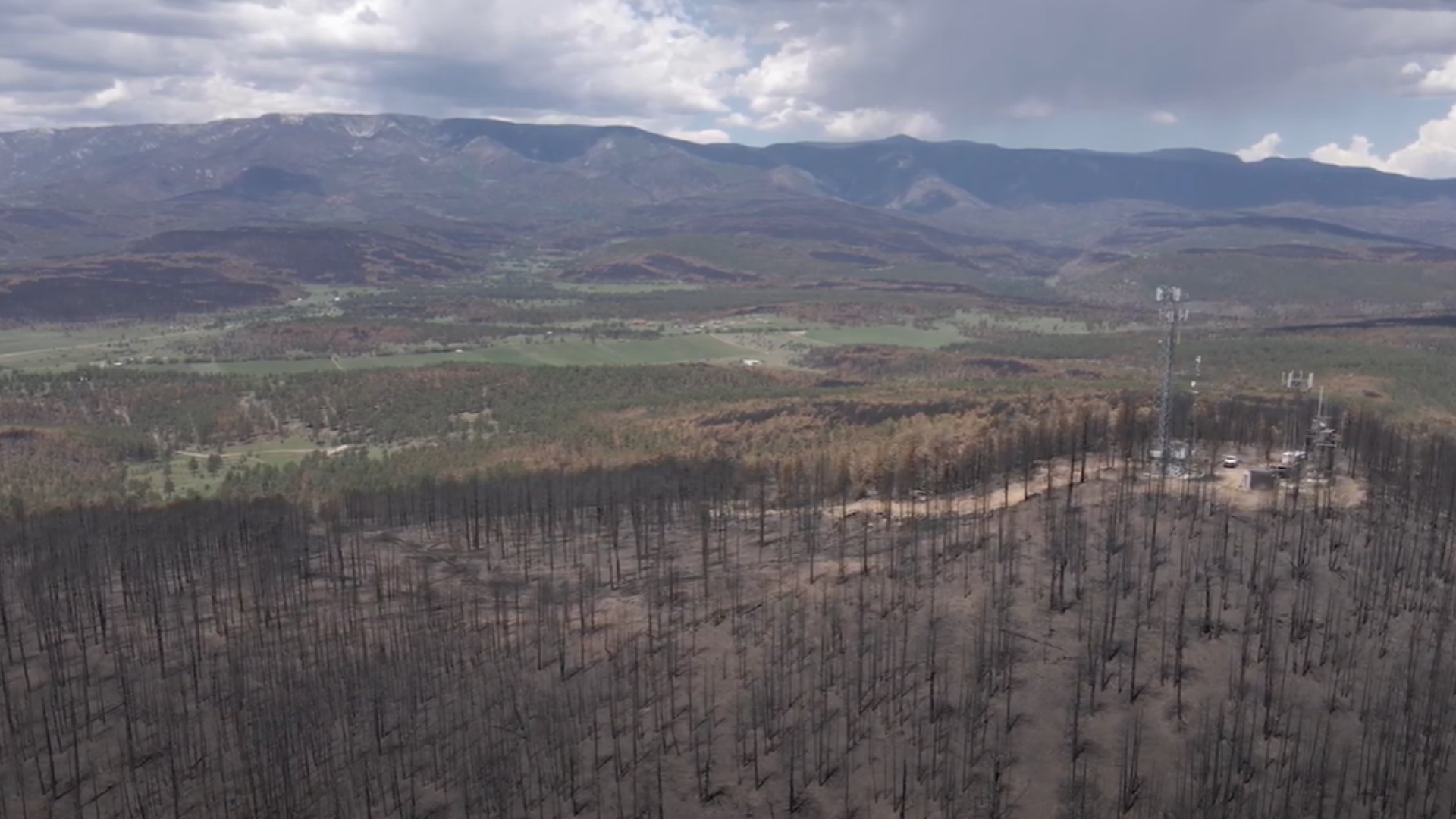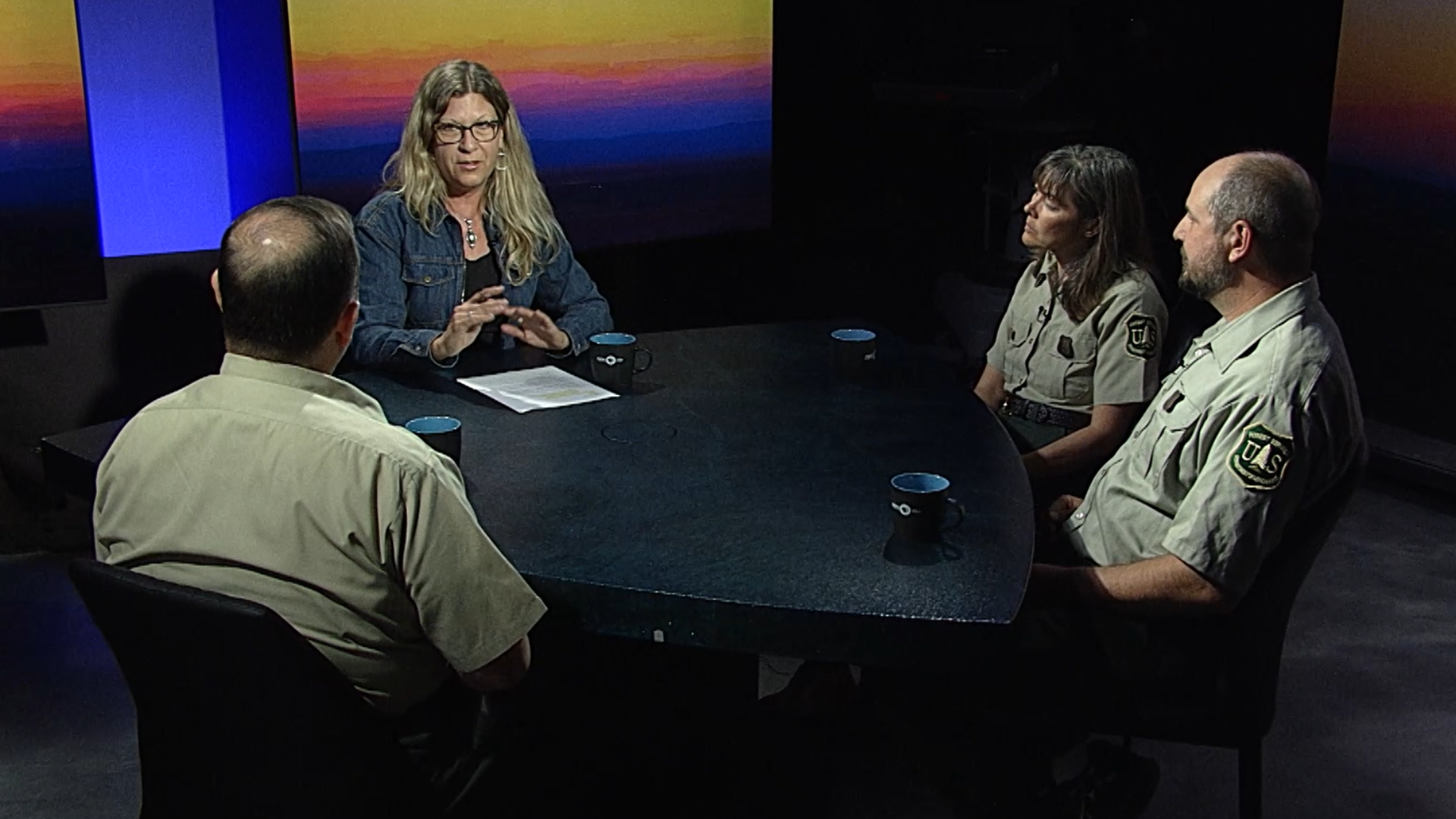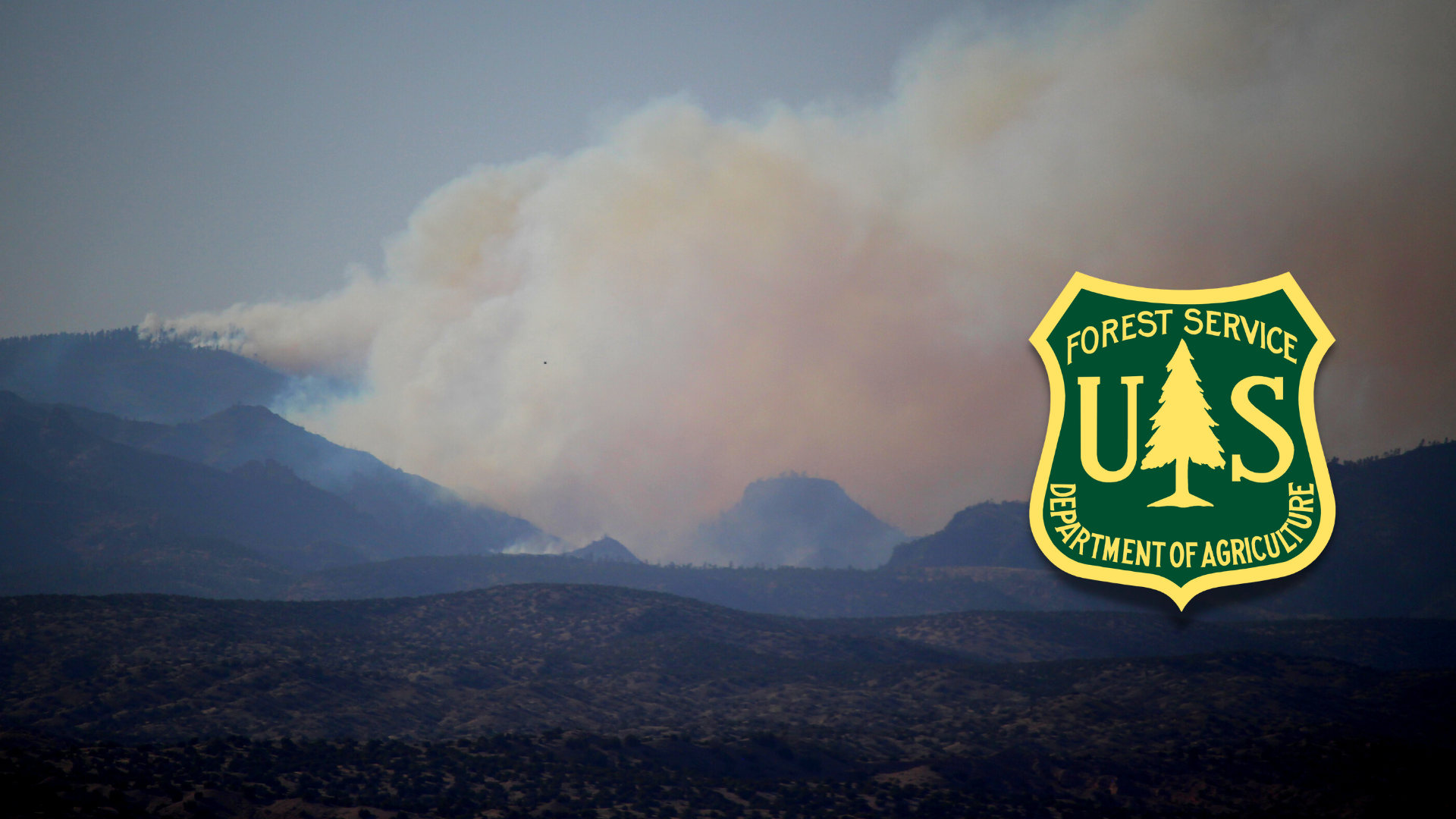Wildfire and the Future
I’ll begin this week’s dispatch with some context by way of disclosure: Laura Paskus and I have been close friends and journalistic confidantes for more than a decade. Laura is, of course, senior producer of Our Land here at NMPBS these days. And for six months nearly to the day, I’ve been executive producer for news and public affairs at the station.
Because of the nature of our relationship, I began receiving foreboding messages from Laura on April 6, 2022 — the day the Las Dispensas prescribed burn exploded into the Hermits Peak Fire, which would go on to become part of the largest wildfire in New Mexico history. It’s known best now as the Hermits Peak-Calf Canyon Fire.
“This is going to be so bad,” read one of Laura’s milder texts.
Hermits Peak-Calf Canyon burned, in the final analysis, more than 341,000 acres and destroyed thousands of homes.
As the blaze embarked on its ravenous path, Laura started down the road toward accountability. What led the U.S. Forest Service to light two matches that would change so many lives and so much of our forested land — and not for the better? As the days passed, Laura lamented that her efforts to get answers from the Forest Service were failing. No one would come on the show and tell viewers what happened.
It’s a frustrating place to sit: Our constituents want and deserve an explanation, but those in power remain mum. Laura and I had been there many times before over 40-plus years combined in journalism. In the case of Hermits Peak-Calf Canyon and, later, the Cerro Pelado Fire, official silence continued for nearly a year and a half.
That changed this week, when three Forest Service officials agreed to appear on New Mexico in Focus and speak with Laura. They are: Michiko Martin, U.S. Forest Service Southwestern Regional Forester; Shaun Sanchez, Santa Fe National Forest Supervisor; and Dennis Carril, Santa Fe National Forest Fuels Program Manager.
Before I proceed, I’ll offer thanks and gratitude to the three of them for engaging in what is a complex, difficult conversation. I was eager to see how it went, and what was clear from start to end was that they all care about the forest, our state and their jobs.
It’s easy to characterize journalists’ push for these kinds of interviews as self-serving, a chance to grandstand by belittling or catching off guard officials who have made mistakes. Sometimes, that’s a fair criticism. Not this time.
Laura asked the questions of Martin, Sanchez and Carriil that badly required answers. Then, she did the hard part: She listened, giving viewers the chance to do the same.
What happens when official sources like these three choose not to speak with journalists like Laura? Whispers. Home-cooked theories. Resentment. The continued erosion of trust in public institutions that has pocked the public discourse in our struggling democracy, particularly during the past several years.
That’s why transparency matters; not because journalists need to burnish a brand or carry forth some frothy agenda.
Laura’s conversation with Martin, Carril and Sanchez carried on over three meaningful segments, with the officials occasionally laying out their efforts to provide better and faster answers to the public. Near the end of the third piece, an exchange between Laura and Martin struck me.
Paskus: “So, we’ve talked a little bit about transparency — the town hall meeting and stuff like that…I’ve been asking the Forest Service since April 2022 to have on-air conversations about Hermits Peak-Calf Canyon, prescribed fire, climate change, and it’s taken a year and a half for that conversation to happen. What is the Forest Service doing in terms of better transparency with the press?”
Martin: “Whoa, that’s a great question. And I hope this is an example of really just being available, being open and willing to talk. And I apologize that it took so long for us to get here — but certainly would invite additional conversations should you want them, and we won’t make you wait a year and a half again…So, sorry that it did take so long. Everything, even the way that we work with the press during [fire] suppression to the kinds of engagement Sean’s talking about when we have a prescribed fire, we are really just lifting up the curtain, throwing the room open and just inviting people in, because we see that as a necessary step towards rebuilding trust with the community. So, hold us to that — and I mean that, hold us to it.”
We’ve all seen enough memes built around the phrase, “You misspelled ‘I’m sorry,’” to stun a team of oxen. But Martin spelled it correctly, and she also opened a door at the end of her response: “Hold us to it.”
Laura will. I promise.
-Jeff Proctor, Executive Producer
-
Building Public Trust in the Forest Service
9.22.23 – In the third and final segment of their conversation, Our Land Senior Producer Laura Paskus asks the special roundtable…
-
New Fire Protocols
9.22.23 – In the second of a three-part conversation, Our Land Senior Producer Laura Paskus asks the special roundtable how protocols…
-
2022’s Historic Fire Season
9.22.23 – This week on New Mexico in Focus, Our Land Senior Producer Laura Paskus hosts a three-part roundtable conversation with…




